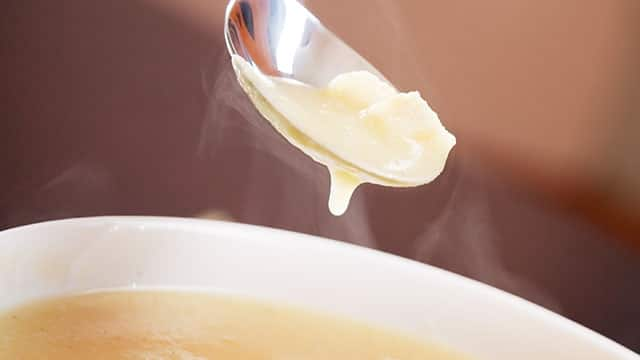-
-

FLUORIDE
What Is Stannous Fluoride Toothpaste?Discover what is Stannous Fluoride Toothpaste and its importance to prevent cavities and other oral health problems.

TEETH WHITENING
Whitening toothpaste - hydrogen peroxide vs. carbamide peroxideIf you lose one or more of your front teeth due to injury or decay, you may feel ...
-
Science & InnovationOral Health Commitment
- Oral Health Commitment
- Bright Smiles, Bright Futures
- Educational Resources
- Mobile Dental Van
- Volunteer
- ORAL HEALTH CHECK
- PRODUCT MATCH
- Oral Health and Dental Care | Colgate®
- Oral Health
- Brown Tongue: Symptoms, Causes And Treatment


You’re looking in a mirror and catch a glimpse of your tongue. It looks different. You stick it out, and you think, “That’s weird; why is my tongue brown?” Don’t panic. Here’s what to know and do if there is a brown coating on your tongue.
Symptoms and Causes of Brown Tongue
A healthy tongue is light pink and covered with small nodules (papillae). Typically, a healthy tongue sheds and regenerates continuously. If that doesn’t happen, bacteria and other substances become trapped. This bacteria can cause your tongue to look brown. Several things can cause this deviation in color. Brown tongue causes include smoking, drinking a lot of coffee or tea, and poor oral hygiene.
If not treated, the nodules can get larger than usual and give the tongue a hairy appearance. This issue is referred to as Black Hairy Tongue.
Treatment Options for Brown Tongue
Brown tongue is very treatable and usually something you can take care of on your own. Good oral hygiene is essential. Remember, when you brush your teeth, brush your tongue as well. Use a toothbrush designed to include a cheek and tongue cleaner. Make sure to use the scraper part of the toothbrush to slough off dead cells. If you’re a coffee drinker, drink less. If you’re a smoker, it is never too late to quit. Drink more water for increased hydration and eat a healthy diet. All of these things will help remove most of the discoloration. Additionally, you can swish with antimicrobial mouthwash or warm salt water to reduce the chance of bacterial growth.
While it may be alarming to look in your mouth and see a brown tongue, know it’s very curable. Having a good oral health routine is vital. If you’re concerned or don’t see improvement within a few days, contact your dental professional to set up an appointment after trying the treatment options mentioned.
Oral Care Center articles are reviewed by an oral health medical professional. This information is for educational purposes only. This content is not intended to be a substitute for professional medical advice, diagnosis or treatment. Always seek the advice of your dentist, physician or other qualified healthcare provider.
Related Articles

Nutrition and oral health
Loss of Taste: Causes and TreatmentsFood lacking flavor these days? Here's what could be disrupting your ability to taste and what you can do about loss of taste. Learn more, here.

Nutrition and oral health
Is Popcorn Bad For Your Teeth?Is popcorn bad for your teeth? Here's what you need to know about how this popular snack can affect your dental health.

Nutrition and oral health
Soft Food Diet Options: What To Eat After Dental TreatmentA soft food diet is required after certain dental procedures, like extractions and implants, to prevent damage to your teeth, mouth or new prosthetic.

Nutrition and oral health
Does Taking Vitamin K2 Benefit Your Oral Health?You are what you eat, and the vitamins you include your diet can benefit your overall health. Here's what to know about vitamin K2 benefits.
Related Products

Colgate Total Active Prevention Whitening Toothbrush is a soft toothbrush with charcoal infused spiral and Floss-Tip bristles (1). This soft bristle toothbrush fights the root cause* of cavities, plaque, gingivitis, bad breath, tartar buildup**, and stains*** and also helps remove surface stains to prevent stain buildup.

Power away plaque with Colgate Total Battery Powered Toothbrush. This battery operated toothbrush for adults fights the root cause* of cavities, plaque, gingivitis, bad breath, tartar buildup**, and stains***. Plus, this battery toothbrush has a built in 2 minute timer and features two cleaning modes, Sensitive and Regular, to cater to your unique oral care needs.

The Colgate Total® Active Prevention Foaming Clean Soft Bristle Toothbrush is specially designed to tackle the root cause* of cavities, plaque, gingivitis, bad breath, tartar buildup**, and stains***.

Colgate Total Alcohol Free* Gum Health Mouthwash delivers 24-hour protection** against bacteria and also helps prevent gum problems

Helping dental professionals
More professionals across the world trust Colgate. Find resources, products, and information to give your patients a healthier future




